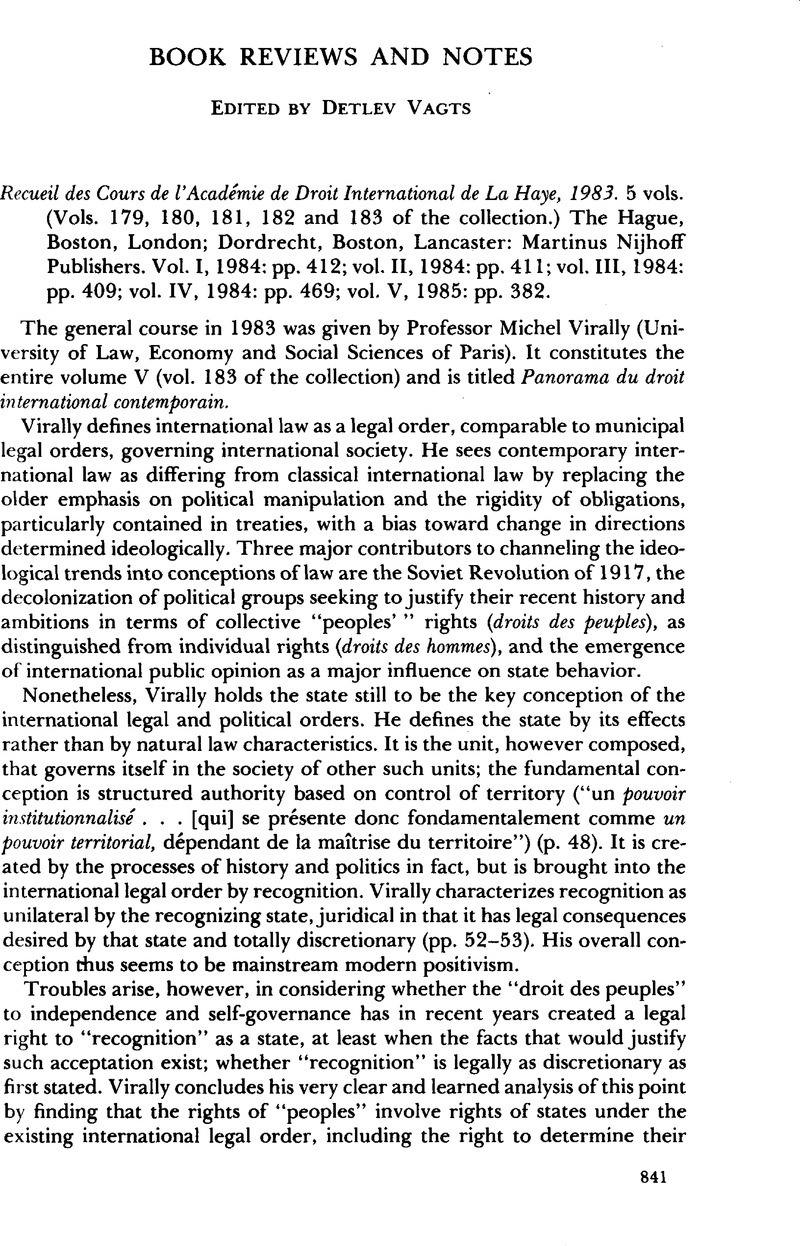No CrossRef data available.
Published online by Cambridge University Press: 27 February 2017

1 The word appears to have entered the common law via a Latin phrase used by Mansfield in holding the law of the place of contracting to be the proper law of the contract “ex comitate et jure gentium.” Robinson v. Bland, [1760] 2 Burrow 1077. “Jure gentium” at that time referred to a hypothesized universal substantive law whose traces still survive in modern admiralty law, but whose utility was undermined and whose supposed rules have been, in the main, superseded by the evolution of conflict-of-laws theory. This is not the place for a fuller analysis.
2 “En conséquence … l’on peut définir le sujet du droit international comme étant celui dont la conduite est prévue directement et effectivement par le droit des gens en tant que contenu d’un droit ou d’une obligation” (p. 168).
3 For example, the “pirates” defeated by Pompey the Great in 67 B.C. were considered by the Roman Senate to be subordinate to Rome and not independent, but were in fact treated as honorable enemies during and after the conflict. 5 Plutarch, Parallel Lives of Greeks and Romans 173–77 (C. B. Perrin, trans. 1917). While the privateers of James II and Louis XIV were treated as “pirates” under English law after the abdication of 1688, their defeated soldiers after the battle of the Boyne were treated as combatants and not as criminals. See the petition of John Golding and others to the House of Lords in 1693, 12 Howell’s State Trials 1270, 1275 ff (1816).
4 Military and Paramilitary Activities in and against Nicaragua (Nicar. v. U.S.), Merits, 1986 ICJ Rep. 14 (Judgment of June 27).
5 Some indication of the causes for this situation in the negotiating process are analyzed in Rubin, Liability for Damages from Space Activities and the Need for Domestic Legislation, 7 AFJAG L. Rev. 30 (1965). I do not like to cite my own rather outdated work in a book review, but Gorove cites very little in this section and his bibliography is slim.
6 23 Brit. Y.B. Int’l L. 1 (1946).
7 De jure belli ac pads, bk. II, ch. III, sec. xiii, para. 2. I have checked the 1632 edition but have been unable to find either the 1631 or 1625 first edition.